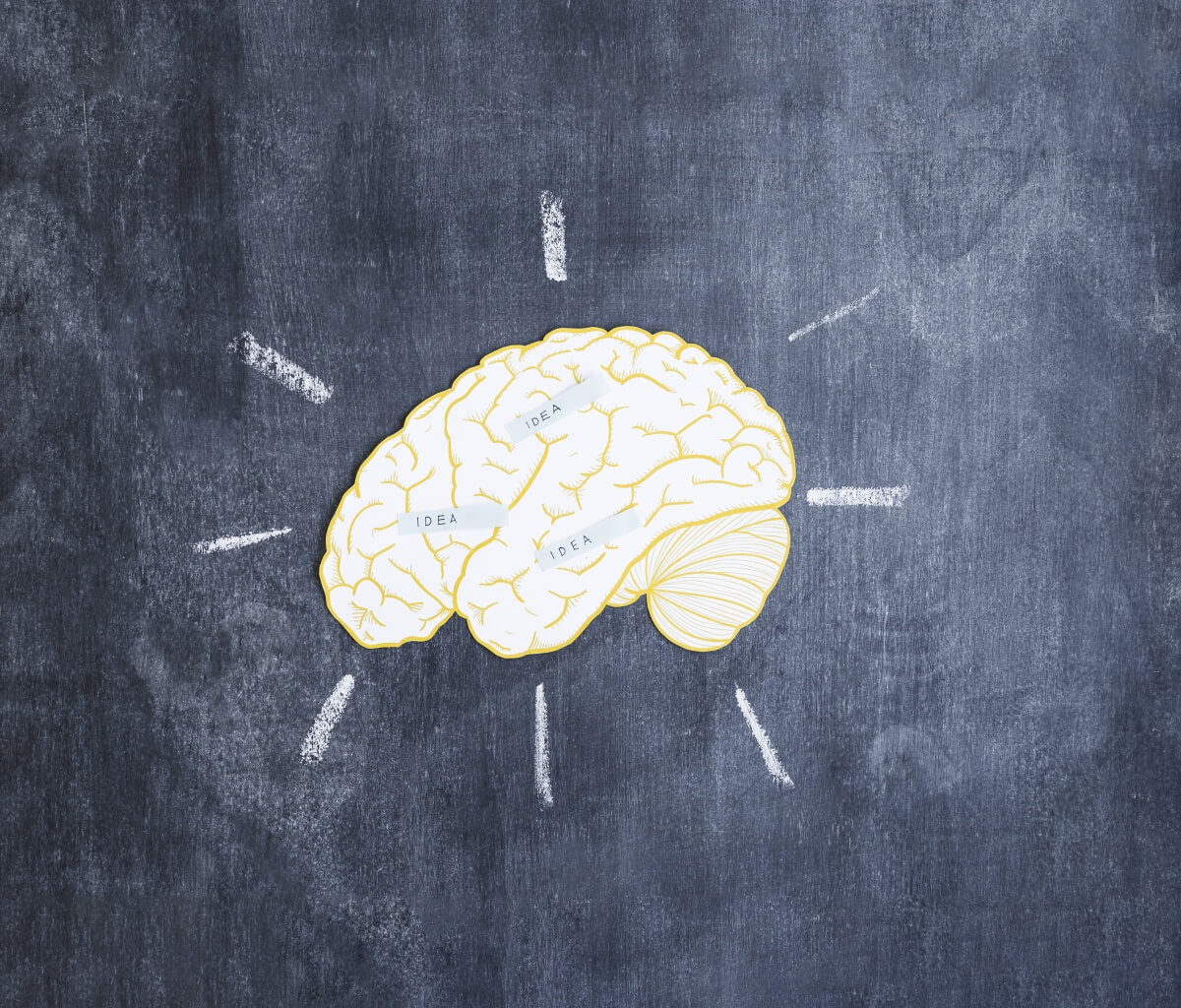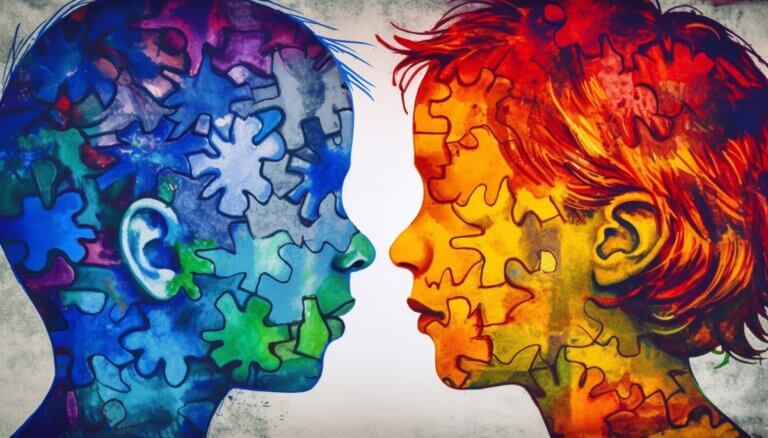Table of Contents
Self-awareness and Emotional Intelligence

The Role of Emotional Self-Assessment
Emotional intelligence and self-awareness are crucial for a well-founded self-confidence. Let’s start with an everyday example: Imagine you are about to hold an important presentation and feel nerves kicking in. Someone with good emotional self-awareness would recognize this nervousness as a natural reaction, evaluate it, and then apply strategies to become calmer or even use the excitement to enhance performance. This not only leads to better performance but also strengthens self-confidence.
The Foundation: Self-Knowledge and Emotional Self-Assurance
The basis for effective emotional self-evaluation is self-knowledge. This means perceiving one’s own feelings and understanding the connections between emotions, thoughts, and actions. Consider a leader who often reacts impulsively. By developing the ability for self-reflection, this person could learn to control their reactions, thereby creating a more balanced and respectful work environment, which boosts their confidence and that of their employees.
- Recognition and labeling: A person who can accurately identify their feelings is able to appropriately express and deal with them.
- Analysis: Tracing emotions back to their source helps to understand triggers and possibly modify them.
- Action competence: Emotional self-assurance enables a targeted influence on one’s own emotional state.
Emotional Intelligence in Everyday Life
A poignant example from real life is the situation of a conflict. A person with high emotional intelligence will perceive their emotions during an argument, allow them, and simultaneously analyze them. This enables them to consciously decide whether and how to respond to provocations, leading to constructive conflict resolution.
Ultimately, it is emotional self-evaluation that helps a person become aware of their strengths and weaknesses and use these insights for personal growth. It’s not just about regulating feelings, but understanding them as guiding forces for a satisfied and successful life. Emotional intelligence is thus a crucial element for genuine self-confidence and an indispensable component of personality growth.
The Effects of Emotional Self-Regulation on Self-Awareness
Self-awareness in emotional intelligence is a powerful pillar in the foundation of personal development. This encompasses the ability to self-regulate emotions, a key component. This competency involves recognizing, understanding, and purposefully managing one’s feelings. This skill leads to profound emotional intelligence and self-perception, which in turn significantly strengthens self-confidence. In the following paragraphs, we specifically explore how techniques such as breathing exercises or meditation can give a positive boost to self-confidence.
Emotional Self-Regulation in Everyday Life
Take the example of Max, a project manager who often feels stressed. An important meeting is coming up, and he feels his nerves building up. Instead of being overwhelmed by this wave of tension, he turns to breathing exercises learned from an emotions management training. By deep inhalations and exhalations, he returns to a state of calm and composure. This simple, yet effective tool of emotional self-regulation allows him to conquer his fears and enter the meeting with strengthened Emotional Intelligence Self-Knowledge.
- Conscious breathing not only reduces stress levels but also promotes clear thinking.
- Breathing exercises are applicable anywhere and anytime, providing flexible solutions in stressful moments.
- Regular practice of breathing techniques enhances overall well-being and self-confidence.
The Role of Meditation for Emotional Self-Assurance
Bettina, an executive, often doubts herself before making important decisions. Through daily meditation sessions, she discovers the power of silence. In the quiet of her meditation practice, she learns to view her emotions objectively and not be governed by temporary emotional fluctuations. Thus, she develops profound Emotional Self-Assurance, enabling her to act more decisively and confidently on a professional level.
- Meditation aids in developing an objective perception of one’s emotional states.
- Regular practice strengthens the ability for self-regulation, leading to better emotional control.
- Self-awareness and understanding improve, which directly affects self-confidence.
Conclusion
Emotional self-regulation is a learnable competency that significantly influences self-confidence. Through practices like breathing exercises or meditation, anyone can develop this ability, leading to stronger emotional intelligence and self-perception. The personal and professional impacts are profound, as emotional self-assurance is a crucial factor for a balanced and self-determined lifestyle.
Self-Perception and Emotional Intelligence

Self-Perception and Emotional Intelligence
Emotional intelligence and self-awareness are inextricably linked. The ability to __recognize one’s own emotions__ is a fundamental step in developing emotional intelligence awareness. Only when we understand how and why certain feelings arise in us can we effectively deal with them. But how do we manage to not only capture but also understand these often fleeting emotions?
Deciphering the Language of Emotions
Our emotions send us signals – they are clues as to how we react to our environment. To decipher these, it is essential to pay attention to our body and our thoughts. For example, an accelerated heartbeat may indicate excitement or fear, while a feeling of emptiness might suggest sadness or disappointment.
- Improving Emotional Self-Awareness: Keep an emotion journal to recognize patterns in your emotional responses.
- Utilizing Techniques for Self-Reflection: Mindfulness meditations can help gain more clarity about one’s emotional states.
- Seeking Feedback: Conversations with trusted people can broaden one’s perspective and contribute to better self-perception.
Benefits of Emotional Self-Knowledge
Being aware of one’s own feelings is not just crucial for individual well-being. Various studies have shown that people with high emotional self-awareness are often more successful in their careers and more satisfied in their relationships, as they can better handle stress and create more constructive relationship dynamics.
Use the journey of discovery into the world of your own emotions as an opportunity to strengthen your __self-confidence__. People with secure access to their feelings are often more resilient and better prepared to face life’s challenges.
Dealing with Emotional Challenges
A central aspect of emotional self-assurance is the ability to remain composed even in challenging situations. When we understand our emotions, we can consciously decide how we want to respond to them. Instead of being overwhelmed by strong feelings, our emotional intelligence allows us to act appropriately and thoughtfully.
To round off this article, I refer to the numerous scientific publications that demonstrate that working on one’s own emotional intelligence leads to increased quality of life and improved social skills. Take the first step towards emotional self-awareness: Start by exploring your feelings and understanding them as part of your personal growth journey.
The Impact of Emotional Clarity on Decision-Making Processes
Emotional intelligence and self-awareness are essential building blocks for making informed decisions in any life situation. At its core, it’s about the ability to understand one’s own feelings, to name them, and to respond to them appropriately. This understanding is especially important in the workplace, where decisions often have far-reaching consequences.
The Role of Emotional Self-Knowledge
Well-developed self-knowledge fosters emotional clarity, which is needed to navigate complex situations. For instance, if a team leader, due to pronounced emotional clarity, takes measured actions during a conflict, it shows direct positive effects on the work environment. Here, self-aware emotional intelligence consistently manages to demonstrate constructive ways to resolve conflicts.
- Those who know their own emotions can better assess the moods within the team and thus effectively address interpersonal challenges.
- Enhanced awareness of one’s own reactions helps avoid rushed decisions and strengthens self-confidence.
- The ability for self-reflection leads to constructive reception and implementation of feedback, which is essential for personal growth.
Decision Making in Critical Moments
Emotional self-assurance is particularly evident in crisis situations as a key competence. When quick solutions are needed under pressure, the calmness attained through Emotional Intelligence helps remain objective and make sound decisions. If a leader is aware of their feelings, they can respond calmly to market fluctuations or internal crises without deviating from the path of reason.
Practical examples demonstrate that leaders with high emotional intelligence manage teams more effectively, as they intuitively perceive the emotions of others and act adequately. This not only boosts productivity but also creates a culture of trust and openness.
By promoting Emotional Intelligence and Self-Awareness in organizations, employees can better handle stress, which in turn minimizes the risk of poor decisions. Furthermore, an increased level of self-aware emotional intelligence enables the development of strong interpersonal relationships, which are the cornerstones of every successful business.
Deep reflection on one’s own emotions leads to a profound understanding of how they can influence thinking and action. This, in turn, paves the way for wise decisions that lead to sustainably positive outcomes both professionally and personally.
Summary
Self-confidence and Emotional Intelligence are two interconnected concepts that are crucial for personal development and experiencing success in daily life. Emotional intelligence enables us to understand our feelings and act accordingly, which in turn strengthens our self-confidence.
The Importance of Emotional Intelligence and Self-Awareness
Emotional intelligence and self-awareness are the foundations on which self-confidence is built. They allow us to recognize, name, and constructively deal with our own emotions. Individuals with pronounced emotional self-assuredness can control their emotional states, thereby enhancing their self-perception and self-confidence.
- People with high emotional intelligence can better use their feelings for performance enhancement, rather than being overwhelmed by them.
- A clear understanding of one’s emotions leads to more effective actions in conflict situations and strengthens the ability to resolve conflicts.
- Regular application of techniques for emotional self-regulation, such as breathing exercises and meditation, increases overall well-being and self-confidence.
Practical examples, such as the prudent action of a leader in a conflict, illustrate the significance of emotional self-assuredness in the professional environment. The ability to understand and control emotions is essential to make well-founded decisions under pressure and to lead effectively.
To deepen understanding, specific methods are recommended:
- Maintaining an emotion journal to improve emotional self-awareness.
- Using mindfulness meditation to gain a deeper understanding of one’s own emotional states.
- Engaging in trustful conversations to receive feedback and sharpen self-perception.
Self-confidence through emotional intelligence not only strengthens the individual but also significantly contributes to better interpersonal communication and stronger teams. Emotional clarity is the key to deciphering the signals that our emotions send. This leads us to well-thought-out and confident decisions, laying the foundation for a satisfied and successful life.
It is indisputable that by developing emotional intelligence and self-awareness, both personal and professional competence is enhanced. Become aware of your feelings, use them as a guide, and build on this basis a solid self-confidence of emotional intelligence that will accompany you through all the highs and lows of life.
FAQ – Self-Awareness and Emotional Intelligence
How can emotional intelligence help improve self-awareness and self-perception?
Emotional intelligence enables us to recognize, understand, and regulate our own feelings, leading to deeper self-awareness. By deliberately perceiving and reflecting on emotional reactions, we can also better control our behavior and sharpen our communication skills, which benefits us in our social interactions. Learning how emotions influence our decisions and actions thus enhances our self-perception and helps us appear more authentic and confident.
How can emotional intelligence contribute to enhancing self-awareness and self-perception?
Emotional intelligence enables us to better understand and regulate our own emotions, leading to a deepened self-awareness. By learning to perceive emotions in ourselves and others and responding appropriately, we develop a sharpened self-perception. These abilities help in recognizing and managing both the internal drives and the impacts of our behavior on our surroundings.
How can emotional intelligence help boost self-confidence and improve self-awareness?
Emotional intelligence significantly contributes to enhancing self-awareness by enabling us to recognize, understand, and regulate our own emotions. This enables a deeper understanding of our strengths and weaknesses, leading to a more realistic self-perception and the development of solid self-confidence. A pronounced emotional awareness also allows us to constructively face challenges and criticism, and to actively promote personal growth.




